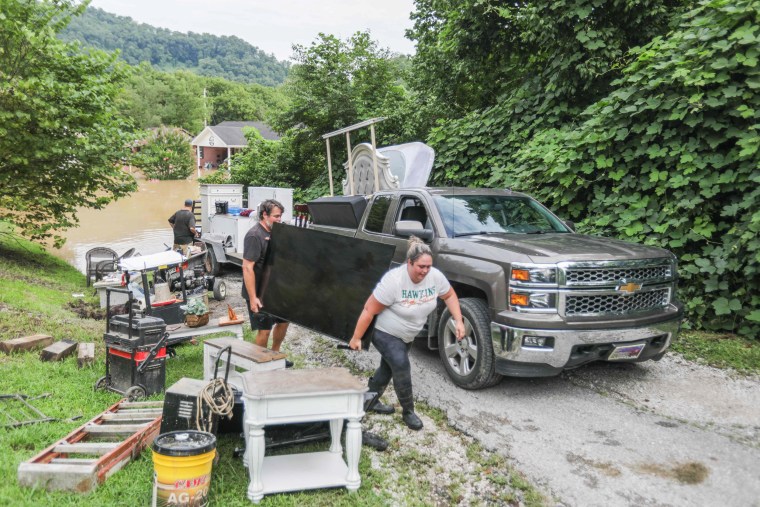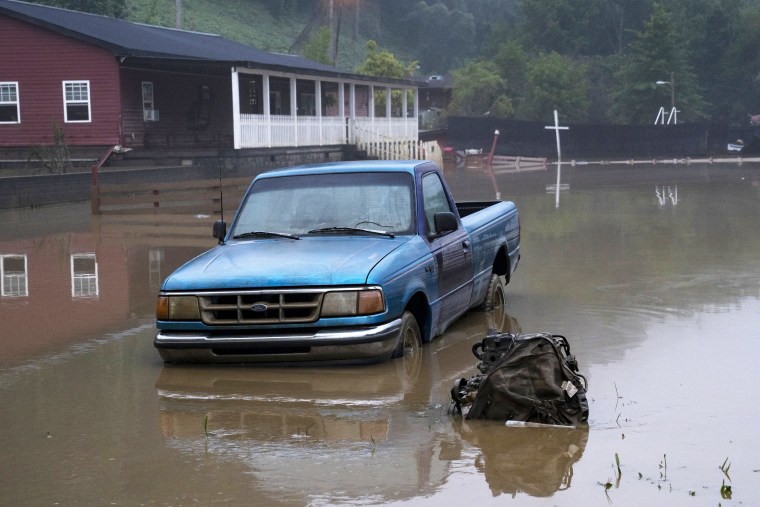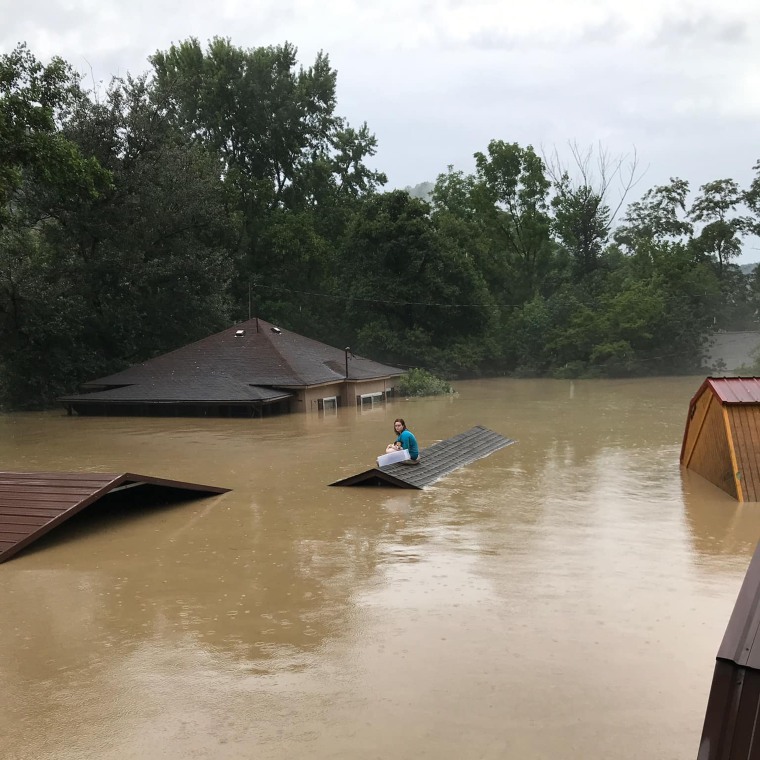A historic deluge that battered eastern Kentucky last week was so devastating because it flooded the region when people were asleep — and because rainfall rates and locations are hard to pinpoint until the downpour happens, the state’s climatologist said.
“The biggest danger that came with this flooding is that most of the rain happened very quickly, very heavily, and overnight,” said Megan Schargorodski, who is also director of the Kentucky Climate Center at Western Kentucky University.

As of Monday, 37 people had died in the floods and “so many more” remain missing, Gov. Andy Beshear said.
“Let us pray for these families and come together to wrap our arms around our fellow Kentuckians,” he said.
The geography of the region contributed to that devastation, with Appalachia’s complex terrain causing waterways and low-lying areas to quickly become inundated, Schargorodski said.
“Many routes get blocked due to flood waters and it can sometimes actually be more dangerous to evacuate,” she said.
Unlike mass evacuations that can happen days before a hurricane, she said, it’s less possible for people in eastern Kentucky to leave when they don’t know when and where the flooding will occur.
Nor are many in the region, with its soaring poverty rates, able to flee even if they wanted to, she said.
Still, Schargorodski said forecasters correctly anticipated significant rainfall across much of the eastern part of the state before the deluge.
Up-to-the-minute information was posted to social media by the National Weather Service and by Kentucky Emergency Management officials, who used Twitter and Facebook. Weather service offices in Kentucky, along with state emergency officials, began warning of flooding to come starting on July 25 at the latest.
Susan Buchanan, a spokeswoman for the National Weather Service, said in an email that its forecasts have been expanded to include not just what the weather will do, but how it will impact people.
The agency provides briefings to local officials, and forecasters often embed with emergency managers during weather events, Buchanan said.
“While we provide anticipated impacts, we do not provide advice for decision making,” she said.
Some of the hardest hit counties were not in the habit of communicating through social media, which could have left some residents without the latest information on the storm.
Kentucky Emergency Management lists “county directors” for local emergency services and links to local sites for more focused information. But in Knott County, where Gov. Andy Beshear said at least 15 people have died, the link leads to a page that “doesn’t exist.”
Its online presence includes a .com commercial page registered in Canada that has only an address and a phone number for “Emergency Management.” There are also third-party pages and sites, such as one hosted by countyoffice.org, with some county and emergency information.
The agency’s phone number did not appear to be working Monday, and a message sent to its Facebook page was not returned.
Efforts to reach the Knott County Sheriff’s Office were also unsuccessful.

Still, Missy Bush, a resident of Knott County, said that officials warned the community “through every avenue available to them.”
“They gave warnings about this system and flood chances, and many people were getting emergency alerts on their phones,” Bush, 40, said via Facebook messenger.
“But due to the time of night it started and how fast the water rose, many people in areas that had never before flooded saw water and went to gather a few things and leave,” she said.
They returned to a vehicle that was half underwater, she said.
“I really don’t know of any other warnings that would have helped,” she added.
In nearby Letcher County, Chloe Adams had no idea that flood warnings had been issuedacross a wide swath of her state.
Adams, 17, awoke at 5 a.m. on Thursday to the sound of gurgling in her father’s double-wide trailer in Whitesburg and found dirty water bubbling up through every drain.
The water was quickly rising inside the trailer as Adams — who was home alone and whose father was at work in Lexington — tried to figure out an escape plan with her dog, an 11-year-old mutt named Sandy that she’d had for a decade.
“All I know was that I only had two options here, we stay inside and drown or I take my chances swimming to safety,” she said in a text message to NBC News. “I knew the dangers of trying to swim in deep water but I felt I had no choice.”
She placed the dog and a sofa cushion in a plastic drawer and plunged into cold, fast moving water, hoping to make it to the roof of a nearby storage building.
“Somehow by the grace of God Sandy and I reached” it, she said.

They stayed there for several hours waiting to be rescued, she said. Eventually, she said, her cousin arrived in a kayak and paddled the pair to safety.
Asked if authorities could have done more to alert her and others to the catastrophic flooding, she said that she believed authorities had done their jobs “perfectly.”
“They did all their warnings and news casts but I don’t watch the news and my phone was charging in another room when all the warnings went off,” she said. “Plus I was sleeping.”
Source: | This article originally belongs to Nbcnews.com









